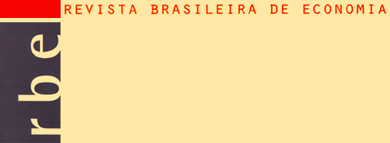This paper investigates whether there is a fraction of consumers that do not behave as fully forward-looking optimal consumers in the Brazilian economy. The generalized method of moments technique was applied to nonlinear Euler equations of the consumption-based capital assets model contemplating utility functions with time separability and non-separability. The results show that when the household utility function was modeled as constant relative risk aversion, external habits and Kreps–Porteus, estimates of the fraction of rule-of-thumb households was, respectively, 89%, 78% and 22%. According to this, a portion of disposable income goes to households who consume their current incomes in violation of the permanent income hypothesis.
Keywords:
CCAPM; Rule of Thumb; Aggregate Consumption; Permanent Income Hypothesis; Euler Equations
































